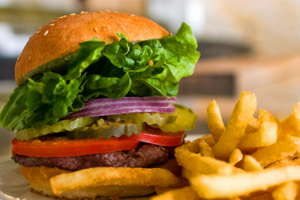 Print this Article
Print this Article

The Halachot of Proper Dining
Adapted by Rabbi Ariel Ovadia[1]
I am sitting at the table with my mother. Should I wait for her to take from the main dish first, or am I permitted to serve myself, and then serve her?
Maran writes in Shulhan Aruch (O.H. 170:12) that one must allow the more important person present to serve himself or herself first. This even applies when each individual has his or her own serving dish (e.g., a small appetizer plate). You should wait for your mother to eat first, and only afterwards partake of the food yourself (Mishna Berura, ad loc., 28). If the parent has made it clear that he or she does not mind, then it would be fine to take for yourself first.
It seems that most people disregard the Halacha of not conversing during a meal. What is the reason?
The Shulhan Aruch (O.H. 170:1) writes that one may not speak during a meal, because it is a choking hazard. However, the Perisha (ad loc.), a sixteenth century commentary on the Tur, already in his day observed that people were not careful about being silent while eating. He therefore suggests that perhaps the restriction is specific to those who recline while eating, which was the custom in the times of Hachamim. He speculates that today, when we sit upright, the hazard is not applicable.
The Aruch HaShulhan (170:2) adds that another leniency in this matter relies upon the principle of “שומר פתאים השם” – “Hashem guards the naïve/foolish” (Tehillim 116:6), a principle that is applied in cases of a possible hazard to one’s health as opposed to an obvious one. These leniencies are cited by Hacham Ovadia Yosef זצ”ל (Yabia Omer Vol. 5 15;20)
According to the original letter of the law, one is still permitted to speak between courses (Mishna Berura 170:1). In fact, one is encouraged at those points to discuss Divre Torah (Avot 3:3).
We have a frequent guest that tends to help himself to a lot of food. Thankfully we’re not lacking, but I don’t think it’s right that he is so generous with himself. I sometimes catch myself staring at him, or rather at his portion. My wife tells me to avoid doing this. Is she right?
The Rambam states that one should not stare (yistakel) at a person while he is eating, or visually take stock of his portion, lest he be embarrassed. This is quoted in Shulhan Aruch (O.H. 170:4); the Aruch HaShulhan (ad loc., 7) understands that this is referring to staring at a guest.
Are there any Halachot about devouring one’s food?
Maran in Shulhan Aruch writes that one should not take a very large portion of food in his hands (O.H. 170:7) or gulp down a glass of wine in one shot (ibid 8). In our times, there are a number of foods which are commonly eaten while being held, like a sandwich or a falafel. We drink beverages that are easily swallowed. However, the principle Hachamim imparted remains relevant: one should eat and drink at a moderate pace, and with a measure of refinement.
Sometimes one of my children does something at the table that another child finds disgusting. Are there any such Halachic sensitivities?
Yes. One of the examples that Hachamim give is taking a bite out of a piece of bread from a main serving dish and returning the remainder of the bread back to that dish (O.H. 170:14). Others are understandably repulsed by this. Accordingly, one should be respectful to other people’s sensitivities at the table (within reason) when it comes to doing something that others may find objectionable.
Footnotes:
[1] From the archives of the OU